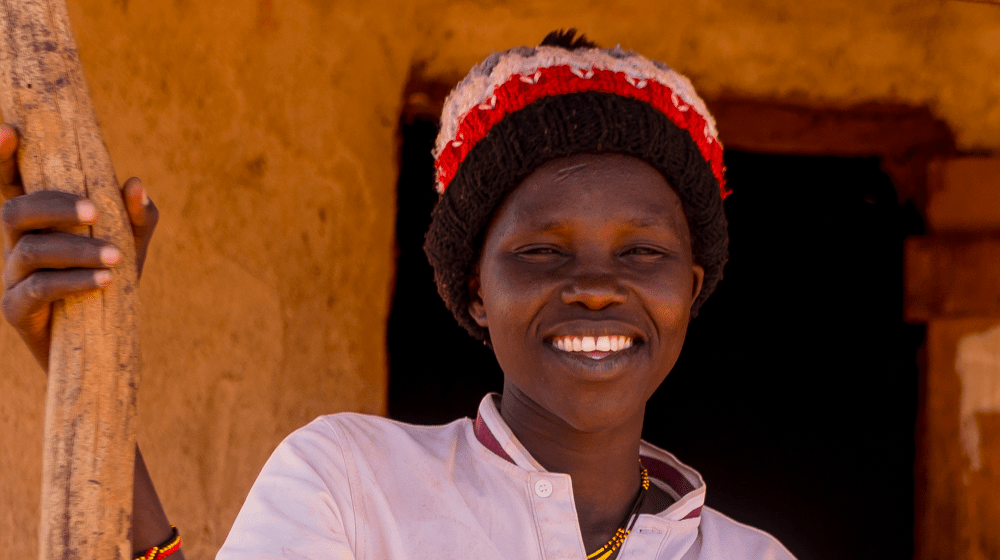In the heart of Amudat district, tales abound of girls as young as 12 years old being forced into marriages. At 23 years old, Julianna knows just how lucky she has been to enjoy her youth without the threat of being married off to a stranger.
"Right now, of course, it is hard for anyone to force me to get married," Juliana declares with fierce determination. "They know I have my own money and I will fight them. They can't even dare!"
In her community, girls are often married off to older men, driven by the economic exchange of cows. "Girls are usually married off to older men because old men are the ones who have a lot of cows to give to the family," Juliana explains, highlighting the harsh reality of her surroundings.
In this region, half of the girls are forced to get married or have had their first child before their eighteenth birthday. The region also has one of the highest incidences of gender-based violence including female genital mutilation.
Juliana Natee, a determined 23-year-old from the village of Koro, has always possessed a skill for hairdressing. In 2021, she seized the opportunity to join a training programme organized by UNFPA and BRAC. Little did she know this decision would shape her future in ways she never imagined.
As part of the training, Juliana honed her hairdressing skills even further. She embraced the chance to become a trainer, sharing her expertise with others in her community. When the programme called upon her to provide hairdressing services, Juliana saw it as more than just a task – a chance to showcase her talent and potential.
With the support of UNFPA and BRAC, Juliana transitioned from a participant in the training programme to a proud business owner.
"At the end of the programme, they [UNFPA in collaboration with BRAC] gave me start-up capital and salon equipment..." reflects Julianna.
Armed with start-up capital and equipment provided by the organizations, she opened her hair salon. The venture attracted a steady stream of customers, especially during the peak months from August to January. She says, "On a good day in the peak seasons, I could make up to Shs. 230,000 ($58) daily through braiding women's hair."
The income generated by her salon exceeded Juliana's expectations, enabling her to reinvest in her business and expand her services. She now runs a separate retail shop during seasons when salon services are not in high demand. She marvels at the lucrative nature of the salon business compared to traditional skills like tailoring. Juliana understands the importance of skilling in business, recognizing it as a pathway to financial independence and empowerment.
In her community, Juliana's entrepreneurial spirit garners respect from both men and women. With her source of income, she defies societal expectations and takes control of her future. Even in her romantic life, Juliana asserts her independence. Dating someone does not mean surrendering her autonomy; instead, it empowers her to stand up for herself.
Reflecting on her journey, Juliana acknowledges the challenges girls face in her community, especially those who lack access to education or resources. She recognizes that programmes like the one she participated in could be life-changing for young women seeking alternatives to early marriage and dependence on men.
Juliana's story serves as a source of inspiration for girls in Koro village, challenging the notion that marriage is the only option for adolescent girls. Through her resilience and determination, she proves that women can chart their paths and create brighter futures for themselves with the proper support and opportunities.
UNFPA, through the UNFPA-UNICEF Global Programme to End Child Marriage has skilled over 40,000 girls with business and livelihood skills to earn their own income and control their bodies and lives in Uganda.
On this International Women's Day, UNFPA joins the rest of the world in a resounding commitment to investing in women for a transformed world where women are empowered and free from violence and harmful practices.


